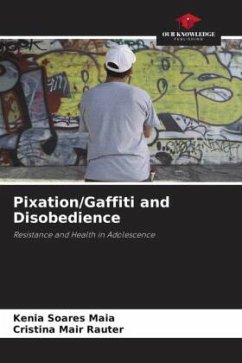This book deals with a study of the resistance of young black and poor people to the effects of racism and the mortification produced by the homicides that affect this population in Brazil. We Brazilian authors are called upon to write about this subject because we are part of this people made up mainly of enslaved blacks, descendants of Africans. This sad history of ours inhabits us, whether we have black skin or not, which defines the relevance of this theme. Slavery has left its mark on our contemporaneity and we have to take it critically and highlight it. We believe that the production of knowledge in the country should focus on its citizens, in this case, black and peripheral adolescents, developing a study on the right to the city. The production of knowledge is a fundamental political vehicle in this process and must have a clear anti-racist stance. This segregation is ours today and must be visible to everyone as a problem for which we have responsibility, giving visibility to resistance, disobedience and constructions of belonging such as: Pixação and Graffiti, understood as productions of health.
Bitte wählen Sie Ihr Anliegen aus.
Rechnungen
Retourenschein anfordern
Bestellstatus
Storno

